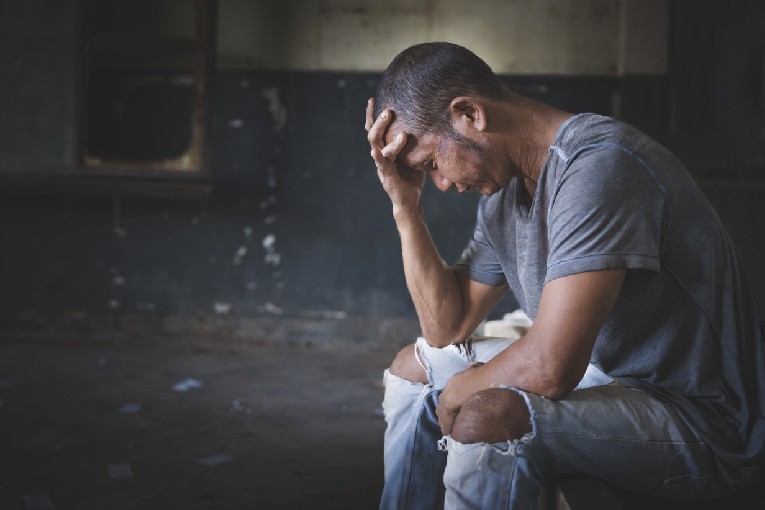Show content
- Physical Symptoms of Heroin Withdrawal
- Psychological Symptoms of Heroin Withdrawal
- Treatment Methods for Heroin Withdrawal
- Medically-Assisted Detoxification
- Cognitive Behavioral Therapy (CBT)
- Other Therapies
- Medications
- Aftercare Services
- Group Therapy
- 12 Step Programs
- Outpatient Treatment Programs
- Sober Living
Heroin is an opioid drug that is highly addictive and can cause debilitating physical and psychological effects when someone abuses it. For those who are dependent on heroin, quitting can be a difficult and unpleasant process. The physical and psychological symptoms of heroin withdrawal can be severe and require specialized care for successful detoxification. This article will explore the signs and symptoms of heroin withdrawal, as well as treatment options for those seeking help for their addiction. We’ll discuss the effects of heroin on the body, the timeline of withdrawal symptoms, and the available treatments. We’ll also provide resources for those who are looking for heroin withdrawal support.
Physical Symptoms of Heroin Withdrawal
The physical symptoms of heroin withdrawal should never be underestimated or taken lightly. These symptoms can be intense and even life-threatening in some cases. Some of the most common physical symptoms of heroin withdrawal include:
- Muscle Aches: Many people experience severe muscle aches when going through heroin withdrawal. These can range from mild discomfort to extreme pain that may require medication to manage. This is why it’s important to seek professional help if you are experiencing these symptoms.
- Sweating: It is very common for people going through heroin withdrawal to experience excessive sweating. This can range from mild perspiration to profuse sweating all over the body, which can also be accompanied by goosebumps or chills.
- Nausea and Vomiting: Nausea and vomiting are two other common physical symptoms associated with heroin withdrawal. It’s important to drink lots of fluids and stay hydrated during this time, as dehydration will only worsen the severity of these symptoms.
- Diarrhea: Diarrhea is another common symptom of heroin withdrawal and can range from mild to extreme cases depending on the individual going through it. It’s important to listen to your body during this time and take measures such as reducing caffeine intake and eating fiber-rich foods in order to reduce the severity of this symptom.
- Abdominal Cramping: Abdominal cramping is another common symptom associated with heroin withdrawal that can range from mild discomfort to intense cramping that requires medication for relief.
- Shaking: Many people going through heroin withdrawal will experience episodes of shaking or trembling that may last for a few minutes or even hours at a time, depending on the person and the severity of the symptoms.
- Insomnia: Insomnia is one of the most common physical symptoms associated with heroin withdrawal, as many people struggle to fall asleep or stay asleep due to their intense cravings for the drug or their general discomfort from other withdrawal symptoms.
Psychological Symptoms of Heroin Withdrawal
In addition to the physical symptoms of heroin withdrawal, many people also experience psychological symptoms such as:
- Anxiety: Anxiety is a very common symptom associated with heroin withdrawal, as many individuals may feel overwhelmed by their cravings or fearful of their inability to control them without access to the drug itself.
- Depression: As opioid receptors become accustomed to having a certain level of opioids in the body, levels decrease drastically when drugs are stopped causing depression-related symptoms such as a feeling of emptiness or sadness; changes in sleep patterns; difficulty concentrating; and a loss of interest in activities that were previously enjoyable prior to drug use become more pronounced during detoxification from opioids like Heroin.
- Irritability: In many cases, irritability is another psychological symptom associated with heroin withdrawal due to the intense cravings that can accompany detoxification from opioids like Heroin as well as changes in neurotransmitter balance caused by stopping drug use altogether.
- Fatigue: Fatigue is another common symptom associated with heroin withdrawal due to the fact that opioids have been known to slow down natural metabolic processes in the body during extended periods of use. Over time users become dependent on the presence of opioids in order for normal biochemical functioning to occur with natural metabolic processes such as energy production leading fatigue related difficulties when drugs are stopped abruptly.
- Suicidal Thoughts: For some individuals struggling with opioid detoxification including Heroin, suicidal thoughts may arise due to feelings of hopelessness or worthlessness related to their inability to stay sober and/or escape their opioid addiction.. It’s important to recognize these thoughts and seek help immediately if they arise during withdrawal..
Treatment Methods for Heroin Withdrawal
Medically-Assisted Detoxification
Medically-assisted detoxification involves utilizing medications like buprenorphine (Suboxone) or methadone in order to reduce the intensity and uncomfortable side effects associated with Heroin detoxification ensuring an effective stabilization process allowing adequate focus on fundamental therapeutic interventions needed for long-term sobriety.
Cognitive Behavioral Therapy (CBT)
CBT aims towards altering ingrained thinking and behavior patterns addressing various aspects related to addiction including unhealthy coping strategies as well as triggers connected with substance abuse focusing on identifying underlying issues connected with addiction instead of solely focusing on eliminating drug use itself. Cognitive Behavioral Therapy allows individuals struggling with addictive disorders to rewire thought processes promoting necessary skills for long-term recovery efforts.
Other Therapies
Other forms of therapy utilized during Heroin detoxification may include Dialectical Behavioral Therapy (DBT), Acceptance Commitment Therapy (ACT), Eye Movement Desensitization Reprocessing (EMDR) designed especially to address underlying traumatic issues often connected to addictive disorders as well as animal-assisted therapies proven helpful some clients struggling to maintain sobriety.
Medications
Pharmacological interventions can involve medications regulating sleep processes minimizing the impact insomnia connected opioid detoxification including uninterrupted sleep while minimizing the intensity of depression-related antidepressant meds through combination behavioral therapies allowing the best outcomes and providing the necessary independent structure needed to maintain long-term sobriety-defined success.
Aftercare Services
Group Therapy
Group Therapy supported research showing positive outcomes integrating peer supportive systems into the recovery process provides clients a communal environment that materializes valuable feedback necessary for self-discovery and enables continued striving for independence and sobriety identified as the primary objective of many outreaches developing early stages of recovery.
12 Step Programs
Popularly referred to 12 Steps Program created by Alcoholics Anonymous in 1939 heavily relied upon numerous residential centers and outpatient treatment modalities today addressing integral aspects of relapse prevention providing the necessary structure and maintaining lasting sobriety.
Outpatient Treatment Programs
Outpatient treatment programs provide individualized structured modality support allowing persons suffering from addiction to continue to return home evenings and weekends recovering in proper sober living environments.
Sober Living
Sober living environments provide additional support post-detoxification stages offering safe constructive living arrangements emphasizing long-term success removing potential negative influences identified risk factors relapse.
Heroin withdrawal is an uncomfortable and sometimes life-threatening process; it’s important to be aware of the physical and psychological symptoms associated with heroin withdrawal so that you can seek proper medical attention and treatment if needed. With the right combination of medications, therapies, and aftercare services, those struggling with heroin addiction can find lasting sobriety and recovery.

